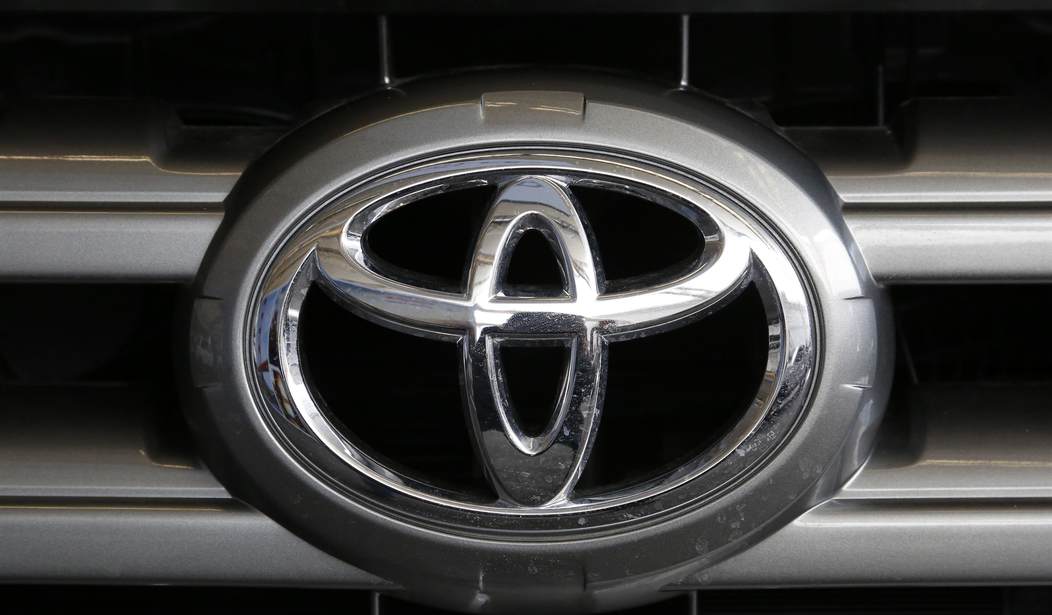The Verge reports that Toyota, the world’s largest carmaker, is working behind the scenes to stall any federal mandates that would ban gas-burning cars.
According to The New York Times, a top Toyota executive has met with congressional leaders behind closed doors in recent weeks to advocate against the Biden administration’s plans to spend billions of dollars to incentivize the shift to EVs. The executive, Chris Reynolds, has argued that hybrids, like the Toyota Prius, as well as hydrogen-powered fuel cell vehicles should also be in the mix.
In addition, Toyota is also pushing back against EV-friendly policy through the auto industry’s main DC-based lobbying group, the Alliance for Automotive Innovation. The group, which represents the major car companies and their suppliers and is chaired by Reynolds, has been arguing against the Biden administration’s plan to adopt the so-called California compromise as its official position, the Times reports.
Anything coming out of California is not a compromise, but let’s leave that aside for now.
The Verge reports that Toyota has lagged behind other carmakers on full battery-powered EV and that’s behind its lobbying to go slow on the full switch. That doesn’t really wash. Toyota has been an early adopter on hybrids and the bottom line is that the Japanese carmaker knows how to make a buck making cars. They make more than anyone else and they tend to make cars and trucks that are among the most reliable. Toyota is largely agnostic on what kinds of cars it has to make, it makes what it knows will sell — and cars that it knows can be powered to do what buyers want them to do.
This is the part that the Verge leaves out. It’s no secret that Toyota has cautioned the whole world on shifting to EVs. It’s no secret why Toyota is taking this stance, nearly alone, when other less successful manufacturers have long since bent the knee to the green left.
Toyota has run the numbers and doesn’t think the power grids are ready to handle electrifying billions of cars. We’ve reported on this for months now. Our first piece on Toyota’s power stance went live in December 2020. Our second hit in March 2021. Both of those articles followed Elon Musk, the world’s most prolific EV maker, issuing the same warning: We’re going to need a lot more electric power generation before we can go electric with our cars and trucks.
Does Elon Musk want the world to go slow on adopting EVs? Of course not. He just wants to caution the world that there’s no free lunch and the grids have to be bulked up to handle powering more cars. We will need an entirely new network of powering stations as well, plus tech to speed up charging EV batteries so charge times are comparable to gassing up. At this point, they’re not.
California and Texas have proven Musk and Toyota right just in the past year, by running out of power thanks to severe weather or other events. Grids as currently constructed can’t handle maximum stress periods now, when most cars are powered by gas and thus place no stress on the power grid. Grids will be under even more strain if we start adding too many EVs without also adding reliable and affordable electric generation capacity ahead of expanding the number of EVs.
The answer is obvious and controversial: more natural gas and more nuclear power. But if you just read outlets such as the Verge or listen to that obnoxious “Hey CEO” ad on TV, you may be inclined to think windmills and solar panels are the answer. They’re not. China is fast cornering the market on rare earth metals and lithium, two major ingredients in so-called renewable energy. That’s a security issue, among others. And neither wind nor solar is ready to power billions of cars a few years from now. Not even close.









Join the conversation as a VIP Member